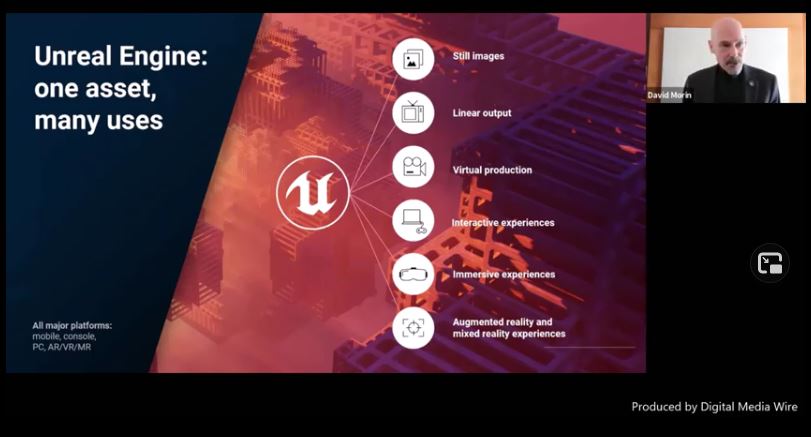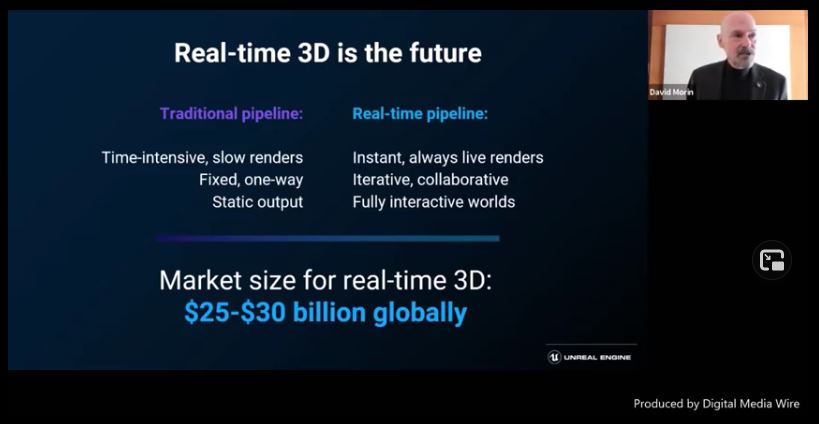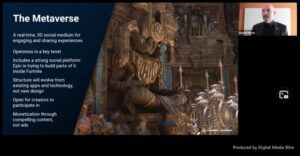Los Angeles based media convention Digital Entertainment World went virtual this year. The 5-day conference focused on management topics and reflected the shifts caused by the acceleration of digitization under pandemic conditions. Each day was dedicated to another media section, all together represented the region’s enormous scope of media activities, all separately drifted on their own way to the Metaverse.

Epic Games’ opening keynote provided a framework for the fundamental moves and shakes in America’s entertainment capital: the gamification of film production and event organization, fueled by actual digitization necessities, leading to computer generated activity platforms as harbingers of the Metaverse – with their Unreal game engine centered at the crossroads of media production pipelines.
The following expert panels dived deeper into specific aspects of this major shift from locality to virtuality. They discussed the perspectives and consequences for film production and streaming services, for esports and gaming, for payment structures, audio broadcasting and music promotion. Most panels referred only briefly to retrospection of the pandemic. The focus was on change management in the understanding and preservation of these shifts and their substantial and long-lasting effects. Games, serial streaming and social audio networking clearly were on the upside. Now, they need to develop strategies to maintain new subscribers and casual audiences if they want to keep their current advantages and progression.
VR productions were seen as an integral part of the digital media landscape, strongly related to Hollywood franchises and promotion enhancements in the media mix. A panel with VR game companies sorted out the ongoing drive for digitization and the problems this caused for VR by being constrained to screened representation only. Their solution seems to go for a playful coexistence between immersive headsets and gaming screens on cooperative playgrounds.
The conference concluded with an interesting discussion on virtual music promotion circling around the Metaverse topic again. The music concerts business was hit the hardest by the lockdown situations, after the digitization already drained their sources of income from selling records some time ago. But this sector also seems to be the most actively experimenting one with the upcoming perspectives of virtualization, including a more radical and consistent approach to VR than even Epic Games seems to envision. Among all these multi-media, cross-media and trans-media convergences, their engine platform still lacks a viable VR editor for fully immersive production, an asset that I would assume indispensable for setting up a meta level.
Digital Entertainment World presented an impressive line-up of reflections, exchanges and perspectives of the vivid Southern Californian media community. Gamification and streaming trends signified additional diversification possibilities for Hollywood’s dream factory outlets. But the established success story of screening experiences entertains variation more than innovation and may even turn into a handicap on the road to the Metaverse.







